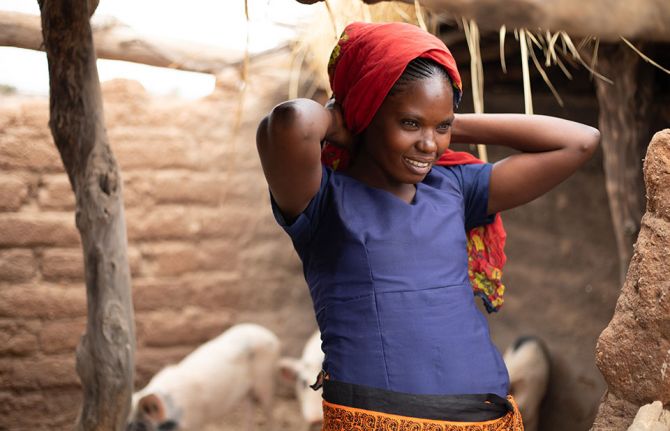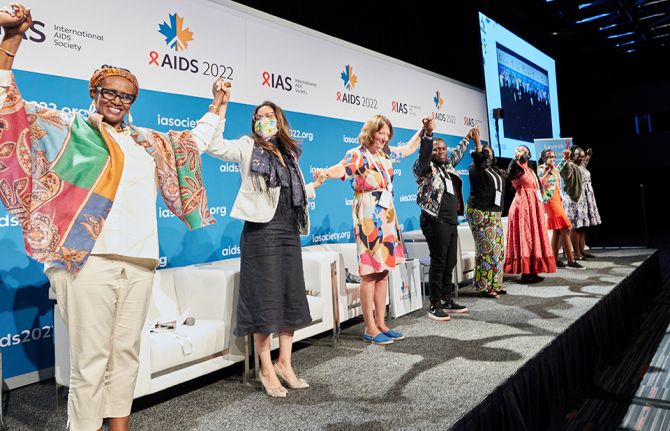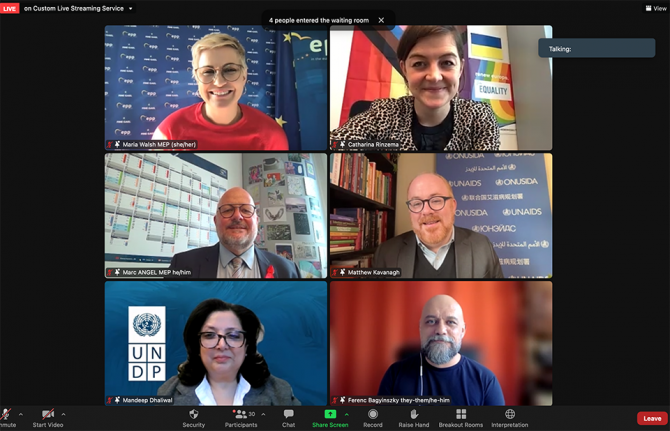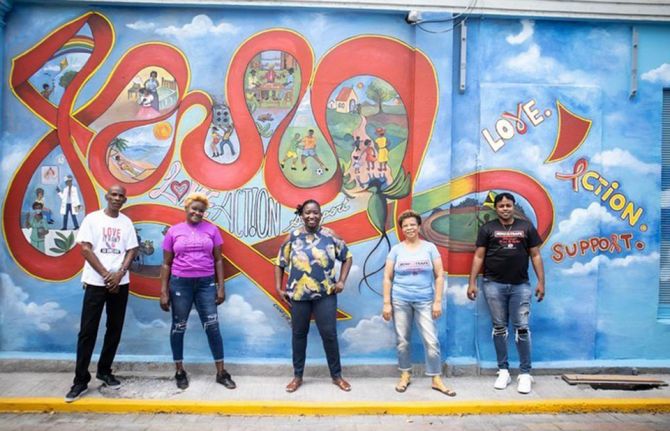

Feature Story
The importance of young people’s sexual and reproductive health and rights to the global HIV response
21 June 2021
21 June 2021 21 June 2021More than a quarter of the world’s population is between the ages of 10 and 24 years—and in some parts of the global South the proportion is two thirds or higher. This is a generation caught between biology and society—between curiosity, questions and concerns about their emerging sexual and reproductive selves and the controls, constraints and conditions imposed by laws, policies and community practices.
On the sidelines of the United Nations High-Level Meeting on AIDS, a group of young activists, government representatives and experts came together in a virtual event on 10 June to discuss the Facts of Life: Youth, Sexuality and HIV.
The meeting, co-hosted by UNAIDS and the International Planned Parenthood Federation (IPPF), brought home the urgency of action. Nearly half of all new HIV infections worldwide occur among young people aged 15 to 24 years, with young women being twice as likely to become infected. Globally, AIDS-related illnesses are the second leading cause of death among young people (aged 10–24 years) and the most common cause of mortality of young people in Africa.
The new Global AIDS Strategy 2021–2026 highlights the urgent need to empower young people to build today’s and lead tomorrow’s HIV response—for themselves and their communities. Nipun Srivastava, a young HIV activist from India, pointed to the challenges ahead. “We have an ambitious target to end AIDS by 2030, but it is not achievable with these regressive policies on sex and sexuality. We lost a lot of people in the 1980s and 1990s because we didn’t talk about sex. We need to stop talking about cows’ and goats’ and bees’ reproduction and speak about sex.”
Efforts to help young people reach their potential in public life need to be mirrored in their private, intimate lives. Alvaro Bermejo, the Director-General of IPPF, emphasized the connection between the physical and emotional well-being of adolescents (including those living with HIV)—and their societies—and access to accurate, age-appropriate sexual and reproductive information and services, allowing them to avoid unwanted pregnancy and unsafe abortion, sexually transmitted infections, including HIV, and all forms of sexual violence and coercion.
And yet, young people’s sexual and reproductive health and rights remain highly controversial. “Case-in-point is the High-Level Meeting on AIDS itself,” said Shereen El Feki, the Director of the UNAIDS Regional Support Team for the Middle East and North Africa. “Some of the most contentious negotiations, and pushback from Member States, on the United Nations Political Declaration on AIDS was on sexual and reproductive health and rights and comprehensive sexuality education.”
The participants heard that the same governments praised for initiatives on young people’s employment or civic engagement often founder when trying to bring the same spirit of youth empowerment to access to youth-friendly sexual and reproductive health and rights services or sexuality education. Amery Browne, the Minister of Foreign and CARICOM Affairs for Trinidad and Tobago, spoke about the delicate act that governments face in balancing conservative forces and youth voices, and urged those working for greater openness to continue their struggle.
Among them is Nadia Abdalla, the Chief Administrative Secretary at the Ministry of ICT, Innovation and Youth in Kenya. A young person herself, she spoke about her country’s efforts to help young people to organize and mobilize for their intimate rights, including their ability to prevent, or live with, HIV. Half-a-world away, sexual and reproductive health and rights activist Ponny White described her work with Advocates for Youth, a nongovernmental organization in the United States of America that lobbies state governments for legal reform to enable young people to access their full sexual and reproductive rights. “A lot of young people are experiencing sexual encounters they don’t understand because someone else is introducing it to them,” she warned, “We want to equip young people with tools and education so they can be autonomous and living a fulfilling life.”
The Internet is one such tool of empowerment. Abir Sarras, the co-founder of Love Matters Arabic, a pioneering social media platform reaching millions of young people across the Middle East and North Africa, pointed to the importance of sex-positive messaging—emphasizing the pleasures, rather than just the problems, associated with sex—as a key means of communicating with young people. But not all young people yet have access to such online resources—Stefania Gianinni, the Director-General for Education at the United Nations Educational, Scientific and Cultural Organization, described the successes and setbacks faced in implementing the United Nations guidance on comprehensive sexuality education in school curricula. “There is no knowledge pill we can give young people,” she said. “But education, hand in hand with access to youth-friendly services, is the most powerful tool for ending AIDS as a public health threat and giving rights to the new generations.”



